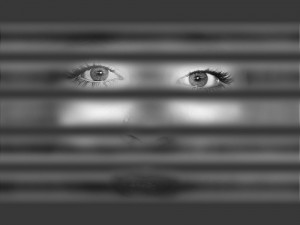 In the past week, I met two new clients, both young women. One talked about her contact with spirits that have become more intrusive and threatening over time. The other talked about her lifelong contact with beings who she thinks of as aliens. She also was aware of spirits and her own spirit guide. She said these other beings were not spirits. She said she needed to figure out what was going on with all this. She was reaching a point in her life where she needed to make some decisions.
In the past week, I met two new clients, both young women. One talked about her contact with spirits that have become more intrusive and threatening over time. The other talked about her lifelong contact with beings who she thinks of as aliens. She also was aware of spirits and her own spirit guide. She said these other beings were not spirits. She said she needed to figure out what was going on with all this. She was reaching a point in her life where she needed to make some decisions.
Meeting these women reminded me of how many people are plagued, confused by, or frightened of their psychic and spiritual experience, but have no place to go to find answers. Most won’t tell a professional or minister for fear of being judged unstable—or worse. Many say they can’t even talk to their families about it.
This social taboo against talking publicly about psychic and spirit realities imposes a boundary that forces many people to hide a significant part of who they are or what is troubling them. The taboo can leave them feeling isolated, even alienated. The isolation itself, as studies in psychology show, can result in depression, loneliness, fears of rejection, or lack of self-worth. In the most serious cases, psychic and spiritual turmoil along with growing social isolation can lead to a psychological (ego) breakdown or even suicide.
As a healer, this taboo bothers me deeply. Many of the people I have seen over the years were already experiencing some level of social isolation when I first met them. Many lived in a kind of schizoid world: one they could talk about and share with others, and one they couldn’t. Depending on the phenomenon involved, and the person, some coped with these experiences easier than others. Some could compartmentalize it and keep it separate from their social world. For others it was too pervasive, a constant interference.
What bothers me so deeply is that many of my clients must maintain this taboo as they go through their healing process. At a time when a person can especially use support and help, they can’t share what is happening in their healing process. Since they couldn’t talk about these things before, so they can’t talk about the painful process they are involved in to address them.
As a result, part of the healing process often involves helping a client minimize the isolating effects of the taboo, develop trust in their own experience and knowledge, and actively seek out individuals or groups where they will experience acceptance and camaraderie. Over time, some clients do find ways of talking to their families and friends about their experiences, and as a result, gain acceptance and understanding.
We can hope that the emergence of alternative approaches to healing will break the taboo and open us to the other dimensions of ourselves and reality. Breaking this taboo will be very much like breaking the taboo that kept incest and child sexual abuse hidden for so long. Once people begin to find out that what is happening to him or her is also happening, or has happened, to others, then they’re no longer alone.It’s no longer necessarily crazy.
Tom Z
Photo: Courtesy of Dar’ya Sipyeykina
